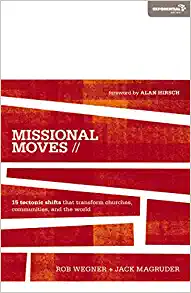
After you have read Part 1, pages 25-106, please comment below with your response to the following questions:
- How would you describe the word “Mission” after reading Part 1 of the text?
- What are one or two key takeaways you have from reading Part 1 of this book?
1) Mission is the mission of Jesus; it should be at the center of every local church, defining everything the church does. (p. 49) “It is not that the church has a mission. It’s that a mission has the church. Mission is designed by God to give the church its identity.” (p. 50) Jesus came to give us one mission, the Great Commission. (p. 50)
2) “All of us are missionaries, and much of the mission work God is calling our people to do will not fit within the centralized ministry focus of a church. God has scattered his people into every domain of society.” (p. 57)
“Recognizing both my poverty and my wealth as gifts from God has helped me to be drawn into what God is doing all around me.” (p. 101)
1. How would you describe the word “Mission” after reading Part 1 of the text?
Mission is any expression of the church. This simply means that mission is designed by God to give the church its identity. Mission is the sweeping force that runs through everything we are and all that we do . JESUS came to give us one mission, that is the Great Commission (p 50) And mission start s with the understanding that the God we serve is a missionary. (Pg51)
2. What are one or two key takeaways you have from reading Part 1 of this book?
In God’s kingdom, my tribe can only find its meaning within the context of every tribe. (Pg 62 ) and with the G3 vision has expanded my understanding of mission as a way of broadening the scope of God’s promise to Abraham and that of the church to his Great Commission. (pg70) Holistically the mission of God requires us to verbally proclaim and demonstrate our proclamation.